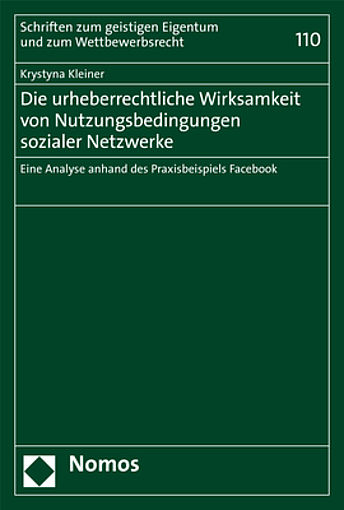englischSocial networks are an example of technological development, which not only determines the social and customer behaviour of consumers, but also sets new challenges for the law. Every day, millions of copyright-relevant items are being uploaded to social networks, where the platform operators acquire extensive rights of use without paying the authors equitable remuneration. Taking the platform of Facebook as an example, the paper explores the question of whether the terms of use of social networks are compatible with copyright rules. In particular, it examines the problem of equitable remuneration for the use of IP content by platform operators, as well as potential remuneration models and alternative regulation options in the context of social networks. The paper examines the relevance of strict copyright regulation in the age of digitisation.
Soziale Netzwerke sind ein Beispiel dafür, wie die technische Entwicklung nicht nur das Sozial- und Nutzerverhalten der Verbraucher bestimmt, sondern auch das Recht insgesamt vor neue Herausforderungen stellt. In sozialen Netzwerken werden tagtäglich millionenfach urheberrechtlich relevante Inhalte hochgeladen, an denen die Plattformbetreiber umfassende Nutzungsrechte erwerben, ohne den Urhebern hierfür eine angemessene Vergütung zu zahlen. Die Arbeit geht am Beispiel der Plattform Facebook der Frage nach, ob die Nutzungsbedingungen sozialer Netzwerke mit urheberrechtlichen Bestimmungen zu vereinbaren sind. Insbesondere wird die Problematik einer angemessenen Vergütung für die Nutzung von IP-Inhalten durch Plattformbetreiber sowie potenzieller Vergütungsmodelle und alternativer Regelungsmöglichkeiten im Rahmen sozialer Netzwerke untersucht. Die Arbeit wirft die Frage nach der Sinnhaftigkeit strenger Urheberrechtsregelungen im Zeitalter der Digitalisierung auf.


